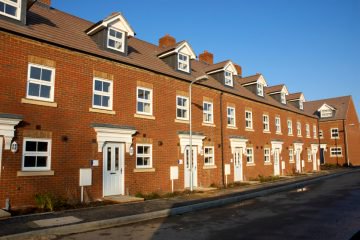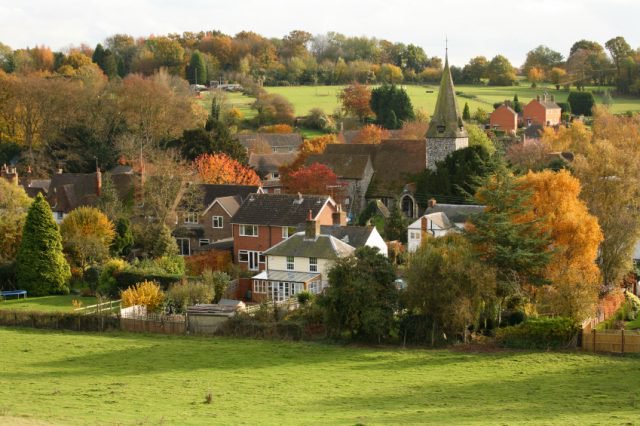Kent’s Best Commuter Towns
For the average working household, property prices in London are now out of reach. More house buyers and property investors are looking to commuter towns for more affordable housing and good commuting times to the capital.
For those working in central London, living in a commuter town is a necessity, but landlords can also benefit from the ripple effect that the capital has on its surrounding areas. As house prices rise in London, values within the commuter belt see the strongest growth compared to other UK regions.
Find out if any of these towns in Kent could work for you:
Sevenoaks
Sevenoaks has been a popular choice for commuters for years, as the Kent countryside balances city life. The town has a population of 30,000 and boasts the large Knole Country Estate, which is owned by the National Trust and open to the public.
It is 25 miles south of London and the commute to Charing Cross or Cannon Street takes 35 minutes.
Properties in Sevenoaks range from 1920s-30s family houses to large Victorian and Edwardian semi-detached and detached homes. There are also recent developments near the station.
Small Victorian terraces can still be snapped up for £250,000-£300,000 in the St John’s area. But other parts of Sevenoaks, specifically Hollybush Lane, demand high prices of around £1.5m. New build apartments sell for about £429,000 for a two-bedroom and £630,000 for a three-bed.
For families, Sevenoaks also has a record-breaking private school. Sevenoaks School was founded in 1432 and topped the national performance tables for GCSEs in 2012. It was also graded the top performing independent school in the same year.
The high street has a mix of medieval buildings and a modern shopping area. There is a limited amount of shops, but there are pubs and restaurants.
The average selling price of a home in Sevenoaks was around £568,540 in May. However, the average price of detached house was £1,044,251. Terraced properties went for £367,000 and flats were £295,000 on average. Prices in Sevenoaks increased by 7% in the year to May.
Tunbridge Wells
Tunbridge Wells is known for its charming Victorian and Edwardian homes and smaller Victorian terraces. It is located on the A21 and has a direct train to Charing Cross and Cannon Street, with the average journey taking one hour.
In the 18th century, Tunbridge Wells was a popular spa resort for Londoners. Its thriving Victorian era left beautiful Victorian houses and churches. Many of the new build properties in the area are designed to mimic this style.
Homes designed by Victorian architect Decimus Burton sell for large sums; some going for more than £2m. Exclusive parts of town include Calverley Park, Nevill Park, Hungershall Park and Camden Park.
Three grammar schools, good comprehensive schools and a selection of private schools make this town attractive to families.
Tunbridge Wells boasts a good mix of small independent shops and high street chains. There are plenty of pubs and hotels, and the usual out-of-town retail park. For culture, head to the town’s two theatres or for the sporty type, visit the sports centre or swimming pool.
In the past year, the average selling price was £220,000 for a flat, £303,000 for a terrace and £395,000 for a semi-detached house. The overall selling price was £358,000. Prices rose in Tunbridge Wells by 6% in the last 12 months.
Tonbridge
Tonbridge was a Norman town originally and has a castle mound and 13th century gatehouse. The railway arrived in 1842 and cemented Tonbridge as a commuter town.
The town is 30 miles south east of central London and is a 40-50-minute commute to Charing Cross or Cannon Street.
The town centre has recently suffered from being so close to nearby Tunbridge Wells, but there are plans to regenerate the area with a new supermarket, cinema, leisure centre and more shops.
Ofsted rated all three of Tonbridge’s grammar schools outstanding in 2013 and the town’s primary schools are at a similar level. The area is also home to the agricultural and horticultural institution, Hadlow College.
Buyers will find large Victorian and Edwardian detached houses in the centre of town, and smaller cottages to the south, dating back to the World War period.
Homes in more expensive parts, such as Dry Hill Park Road and Yardley Park Road, command high prices of around £700,000-£800,000. Detached houses built in the 1920s go for between £190,000-£245,000.
In the 12 months to May, the majority of sales in Tonbridge were semi-detached properties, with an average price of £332,763. Terraced houses sold for £285,420 and flats were 3223,746. The overall average was £347,283 and property prices grew by 15% in the year.
Chatham
Chatham has a wide range of maritime history, with one of the largest naval ports in the country found here before its closure in 1984 after 400 years of operation.
The town is 33 miles south east of London and is on the A2. There are regular trains to London St Pancras, Victoria, Cannon Street and London Bridge, with the average commute 45 minutes long.
There are many property types in the area, such as Georgian houses, Victorian homes and a new riverside village with apartments on the dockside. Some of the South East’s most affordable housing is found in Chatham, with some Victorian terraces priced from £90,000 (although they will need renovation).
There are pricier parts of town, such as Officers’ Terrace where homes sell for over £1m.
Properties in outside areas such as Gillingham go for around £250,000. There are larger, contemporary homes in Walderslade priced between £400,000-£650,000.
Despite having solid architecture, the town has become rundown and neglected. However, shoppers can head to the Dockside Outlet Centre for designer bargains.
The Riverside Country Park is close to town and provides much needed open space. There are also theatres and a cinema close by.
Chatham has three grammar schools, one that was ranked as outstanding in 2013 by Ofsted. The other two also get good results.
Most property sales in Chatham were terraces in the year to May, selling for an average of £159,353. Semi-detached houses sold for £199,761 and flats for £133,755. Overall, the average selling price was £180,844. In the 12 months to May, house prices saw a 4% increase.

